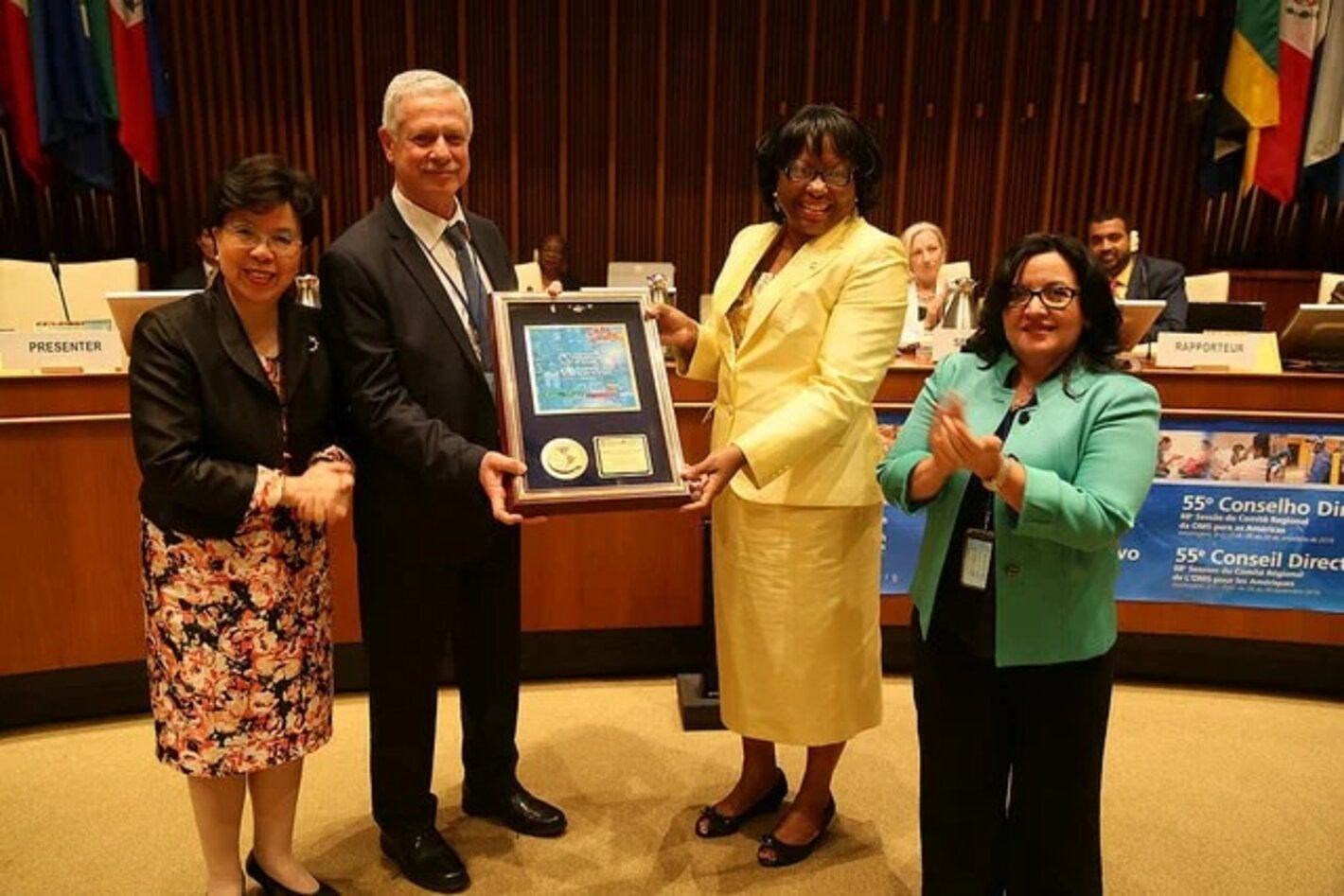
Washington, D.C., 26 September 2016 (PAHO/WHO) - The Pan American Health Organization/World Health Organization (PAHO/WHO) today recognized the Government of Uruguay for "its global leadership in defending tobacco control policies in benefit of people's health over commercial interests." The recognition was made before an audience of health leaders from throughout the Americas attending the 55th PAHO Directing Council.
"As we did with Uruguay, PAHO's secretariat is prepared to support its Member States as they advance their tobacco control and public health initiatives," said PAHO Director Carissa F. Etienne.
Uruguay won an international legal case brought by the Philip Morris tobacco company against tobacco control regulations implemented in line with the WHO Framework Convention on Tobacco Control (FCTC). The World Bank's International Centre for Settlement of Investment Disputes (ICSID) decided in favor of Uruguay last July, confirming that Uruguay's measures to reduce tobacco consumption did not violate Philip Morris' trade rights as established in investment agreements between Uruguay and Switzerland, where the tobacco company is headquartered.
"That victory was a historic milestone that set an important precedent with regard to public health policies and sovereignty," said President Tabaré Vázquez of Uruguay in a message recorded for today's event. "But it's also true that we still have much to do and that the challenges before us compel us to be more active than ever."
Vázquez called on the countries of the Americas to "form a global alliance against the epidemic of noncommunicable diseases," including not only governments but other interested parties as well, noting that "only together will we prevail." He added that tobacco consumption is among the most important risk factor for noncommunicable diseases and urged the application of measures called for in the WHO FCTC. "ICSID's decision constitutes a powerful endorsement of the policies that Uruguay has implemented in favor of the lives and health of its people," he said.
WHO Director General Margaret Chan told Vásquez to "Keep up with the good work. The world is very grateful for your leadership."
Minister of Health of Uruguay Jorge Basso noted that tobacco control measures have had a clear impact in his country, including a greater than 90% reduction in air pollution in closed public spaces, a significant decline in hospital admissions for acute myocardial infarction and bronchial spasm, and reduced tobacco use the country's young people.
"Uruguay is a country that is committed to continue advancing tobacco control measures that benefit its population, especially future generations," said Basso.
The ICSID decision, said PAHO Director Etienne, sends a strong message to other countries "that they too can exercise their sovereign authority and apply evidence-based measures to protect the health of their citizens."
About the case
Philip Morris first presented its claim in February 2010, after Uruguay implemented regulations requiring health warnings to cover 80% of the main surface of tobacco packages, and limiting tobacco manufacturers to one unique package per cigarette brand. Uruguay presented written arguments defending its tobacco control efforts at ICSID, and PAHO/WHO supported the country's defense with an amicus brief.
Despite the industry's legal challenge, in 2014 Uruguay accomplished a full ban on tobacco advertising, promotion and sponsorship by including a new prohibition on product promotion and display at the point of sale. In addition, Uruguay became the second country in the Americas (after Nicaragua) to ratify the Protocol to Eliminate Illicit Trade in Tobacco Products, a new international treaty and the first FCTC protocol.
The measures implemented by Uruguay are in line with the FCTC, which went into force in 2005 and obliges its States Parties to apply a series of policies and measures to reduce tobacco consumption and protect their populations from exposure to secondhand smoke. In the Americas, 30 of 35 countries have ratified the FCTC.
Tobacco kills some 6 million people worldwide each year, both through direct consumption and exposure to secondhand smoke. At least 1 million of these deaths occur in the Americas.



